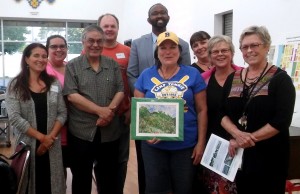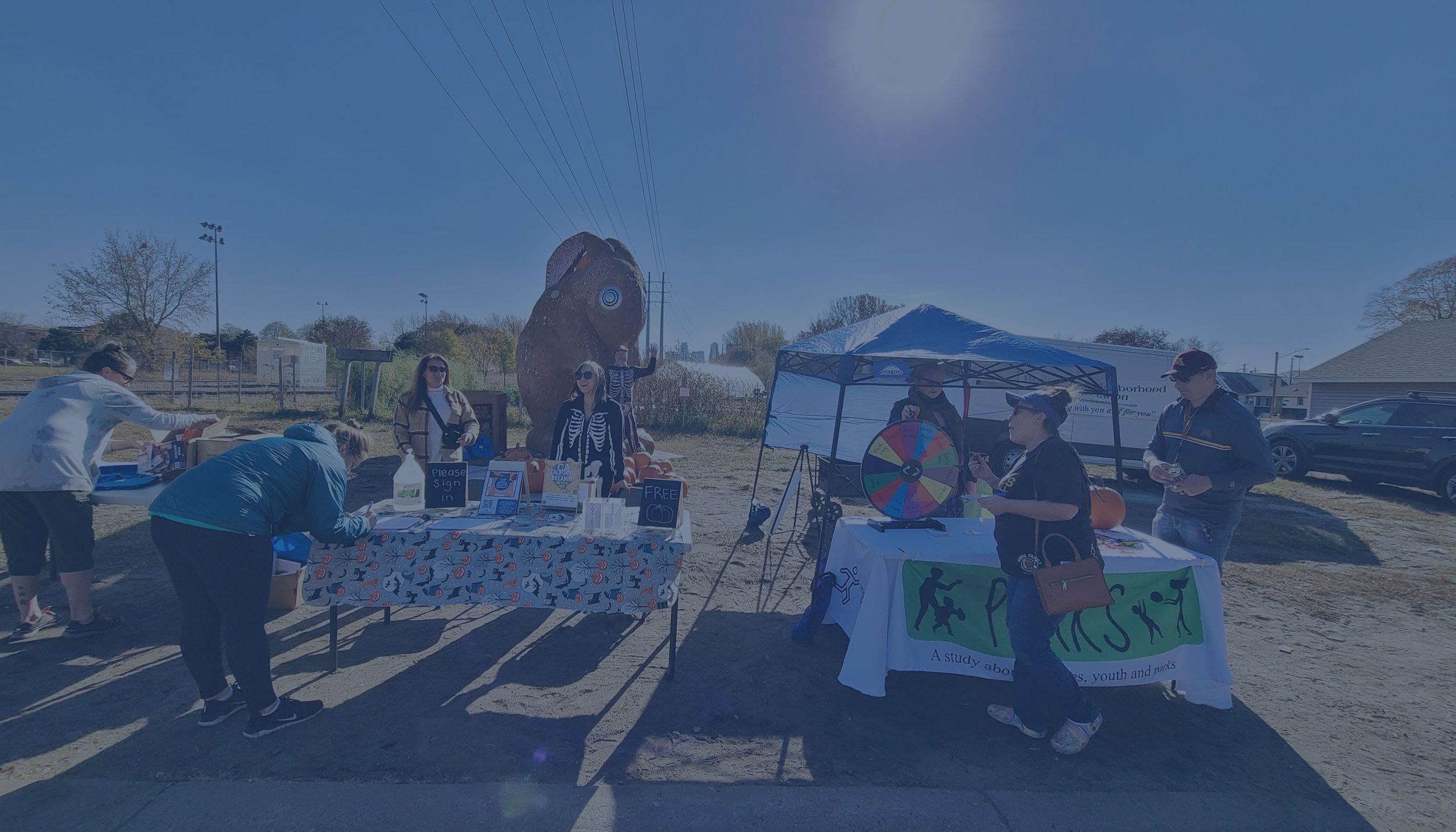 On May 24 at East Side Neighborhood Services, Dr. Hamdy El-Sawaf and Jaylani Hussein spoke and answered questions at the “Islam in Bottineau” forum sponsored by Bottineau Neighborhood Association.
On May 24 at East Side Neighborhood Services, Dr. Hamdy El-Sawaf and Jaylani Hussein spoke and answered questions at the “Islam in Bottineau” forum sponsored by Bottineau Neighborhood Association.
Dr. El-Sawaf is a local psychoanalyst, University of Minnesota professor and Imam at Masjid Al-Iman Islamic community center in Sheridan Neighborhood. Jaylani Hussein is executive director of the Council on American Islamic Relations-Minnesota (CAIR-MN).
At the forum, Dr. El-Sawaf presented a short primer on Islam, followed by a 60 minute question and answer session. Below is a transcript of the Q&A session:
Q 1: If the Koran gives clear instructions, [how is it] that so many people can distort those teachings, i.e. why do you think young people–even in our community–become radicalized?
A1: Many profess to be believers in Islam yet but they fail to act upon the actual teaching of Islam. A2: Youth are especially susceptible to predators. For instance, there are sexual predators that target youth, there are religious predators as well, and they exploit youth and deceive them.
Q 2: How does one acquire the book (Qur’an) with English translation?
A1: CAIR has English translations to order for free on their website called “Share the Qur’an campaign” but you must pay shipping and handling. A2: A copy of the Qur’an in English was given to the Bottineau Neighborhood with the advice that the Qur’an is poetry written in Arabic and the meanings are somewhat lost or distorted in English just like French poetry when translated into English loses some of the meaning.
Q 3: Why do some (Muslim) people not shake hands?
A1: Some scholars teach that it is totally forbidden to touch hands. Muslims will put their hand to their chest to indicate that handshakes are not allowed. Also eye contact in the Muslim culture can be offensive so if a Muslim person is not making eye contact that does not mean they are not listening or being disrespectful. Eye contact varies from culture to culture. A2: Let the Muslim lead the introduction exchange and you will know if a handshake is welcome.
Q 4: What is the best way to show support and camaraderie, say hello to neighbors who are still strangers to us?
A1: The Minnesota Council of Churches has a sign for people to order that says: “To Our Muslim Neighbors BLESSED RAMADAN blessedramadan.org” A2: Also you can order a sign from CAIR that says: “We Stand with our Muslim Neighbors.”
Q 5: Do you have any ideas about how to reach out to the Somali community in our neighborhood and work together with them to improve our community?
A1: This is a newer community to Minneapolis and more transient. Most of the households are woman led. It is an oral society so you need to have conversations as written material will be ignored. Go to the Halal store on 19th and University Ave NE and stand outside and make contact with the women who go in and out of the store. See if you can find a younger woman to bridge your contacts with the older women; that would be best. [Note: This has already been done by Bottineau volunteers and staff, resulting in a long list of phone numbers of many women in the Somali community. Many volunteers have worked with Somali youth in a reading program. For the past 2 years, there has been a co-sponsored National Night Out block party with the women and their children.]
Q 6: Why do they not have pets/touch dogs?
A1: In Somalia, when a dog runs at you it means it is rabid so there is great fear of dogs that run up to a person. In the U.S. dogs run up to people and are not rabid but the reaction is the same. Some Somali families owned dogs in Somalia; dogs were kept outside of the home and dogs are not allowed to lick people in Somalia. [One of the speakers shared a story of a family dog in Somali protecting him as a toddler.]
Q 7: Is it disrespectful to say “salaam alleykum” (Peace of God be with you) or is that a religious sentiment only?
A1: Anytime you greet someone in their own language they will be happy. It would be wonderful.
Q 8: I am having my Somali neighbors over for dinner. What should I serve?
A1: No pork or pork products.
Q 8A: How about milk and cheese.
A2: Yes, definitely those are good things to serve.
Q 8B: Does it have to be Halal meat.
A3: It depends on the individual. Some are very strict and the meat should come from a Halal grocery but others are fine with a regular grocery store product.
Q 9: Why do young girls wear headscarves?
A1: When a girl reaches puberty she is telling men, “I am not for everyone, I am for the one who will pick me out of the millions of women.” It is an honor to wear the scarf. It is beautiful to show this modesty and respect. But not only the scarf is worn; the whole body is required to be dressed modestly. Muslim cultures around the world have differing definitions of “modest dress” but tight jeans with a head scarf are not modest. The term for this scarf and dress is Hajib.
Q 10: How can we help the (Muslim) community move from renters to homeowners?
A1: Islam does not allow interest to be charged on loans as all interest is considered usury. Some scholars in Islamic law have determined it is okay to use U.S. banks to buy a house as long as the Muslim owns the house, not the bank, and therefore monthly payments can be made. It costs more to make this arrangement than a conventional loan non-Muslims can use. There is also an Islamic Finance group in Europe that will finance houses for Muslims in the U.S. This group does not break Islamic law.
